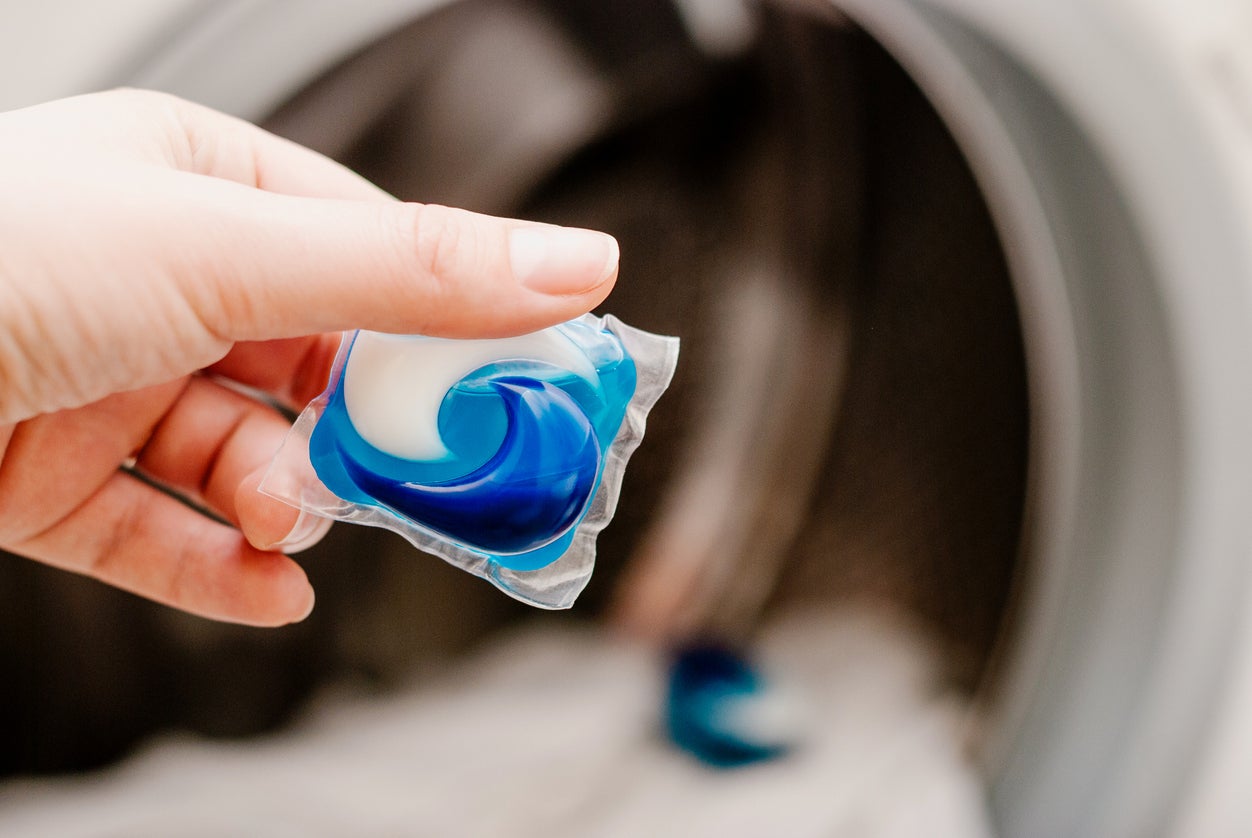Dementia sufferer dies after eating ‘brightly-coloured’ laundry pods that look like sweets
A coroner said the laundry pod’s bright, eye-catching colours were an ‘industry-wide phenomenon’

Your support helps us to tell the story
From reproductive rights to climate change to Big Tech, The Independent is on the ground when the story is developing. Whether it's investigating the financials of Elon Musk's pro-Trump PAC or producing our latest documentary, 'The A Word', which shines a light on the American women fighting for reproductive rights, we know how important it is to parse out the facts from the messaging.
At such a critical moment in US history, we need reporters on the ground. Your donation allows us to keep sending journalists to speak to both sides of the story.
The Independent is trusted by Americans across the entire political spectrum. And unlike many other quality news outlets, we choose not to lock Americans out of our reporting and analysis with paywalls. We believe quality journalism should be available to everyone, paid for by those who can afford it.
Your support makes all the difference.A 93-year-old dementia sufferer died after eating laundry capsules that looked like sweets, according to a report.
Elizabeth Van Der-Drift died by a combination of aspiration pneumonia, ingesting the toxic laundry tablets, and dementia on March 19 this year.
A carer told the inquest into Ms Van Der-Drift’s death that the packaging “bore more than a passing resemblance to a bag of sweets”, a prevention of future deaths report (PFD) said.
Assistant coroner Ian Potter warned that regulations may pay “insufficient regard” to the risks posed to dementia suffers and the cognitively impaired.
He said in the PFD: “It has long been acknowledged that products of this nature can pose risks to children; however, there appears to be less acknowledgement of the risks posed to those living with dementia or other forms of cognitive impairment.”

The coroner, based in the Inner North London Area, said the “bright, eye-catching colours” were an “industry-wide phenomenon”.
As a result, sending the warning to the individual manufacturer would be “short-sighted”, he said.
Instead, the report was issued to the chief executive officer of the Office for Product Safety and Standards, the Secretary of State for Health and Social Care, and the director general of the UK Cleaning Product Industry Association.
The coroner said he was “well aware” of the Food Imitations (Safety) Regulations 1989 but “it seems to me either that the regulations themselves have insufficient regard to those living with dementia or other cognitive impairment, or that the application of the regulations is not approached with sufficient rigour”.
The regulations prohibit the supply of products that are unfit for human consumption but are likely to be mistaken for food, and explicitly mention the risk to children.
Ms Van Der-Drift lived with dementia for “a number of years” and regularly could not remember when she last ate food, Mr Potter said.
He said she would often “go in search in something to eat” and on March 13 or 14 “gained access to laundry detergent tablets (or) pods that were brightly coloured” and “bit into at least one of them”.
The product was described as “predominantly bright pink and white, with orange, yellow and green also present”.
It also had no “obvious design feature” that would make it difficult for someone with “even the most basic of manual dexterity” to access the “potentially sweet-like” pods, Mr Potter said.
Shortly after consuming the product, Ms Der-Drift was found complaining of stomach pain and shortness of breath.
An ambulance was called and she died in hospital days later.
The inquest found her death was accidental.
Recipients of the PFD must respond to the report by 8 October this year with details of the action taken, proposed to be taken, or why no action is taken, unless the coroner extends the period.